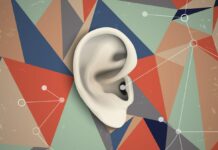Rhianna Goozee discusses the development of the Hearing Voices Movement in The Lancet Psychiatry, and how research has blurred the lines between “healthy” and “normal” minds. She then explores the possibility that early intervention, and early pathologizing of such experiences, may push young people towards rather than away from developing psychosis.
Goozee, Rhianna. “Hearing Voices: Tracing the Borders of Normality.” The Lancet Psychiatry 2, no. 3 (n.d.): 206–7. Accessed March 2, 2015. doi:10.1016/S2215-0366(15)00066-8. (Full text)














